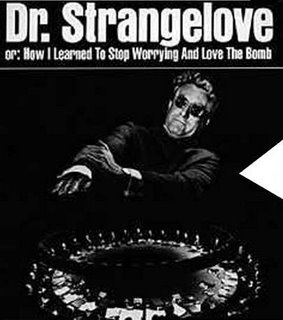 We have been doing it the wrong way. You cannot raise an army to fight against something - anything. You do not fight against, you fight for…
We have been doing it the wrong way. You cannot raise an army to fight against something - anything. You do not fight against, you fight for…In what he called the "Great Patriotic War", even Stalin knew that. Thus, while our troops fought for "King and Country", he invoked Holy Mother Russia, so that the motivation of Russians became little different from our own.
On that basis, although Eurosceptics are against the EU, there will never be a mass movement based solely on opposition to "Europe". People will man the barricades – metaphysical or otherwise – only for something positive, to support, protect or establish something.
Something quite definitely "positive" is our security. People will fight for their own security, to protect themselves and their own, and will generally give their support to agencies which are devoted to that end – the Army, the police and other "security forces".
And, according to home secretary John Reid, our security is under threat. Speaking on the BBC Radio 4 Today Programme yesterday, he told us that another terrorist attack in the UK is "highly likely".
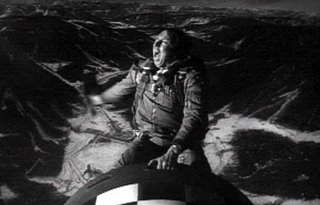 Now, where there is a high security threat, that takes precedence over many other issues and, when you are effectively fighting for your life, with your armed services engaged in a shooting war number of theatres, many other things tend to drop out of sight. They are less relevant to our main concerns and less of a threat than the more tangible enemies who threaten life and limb.
Now, where there is a high security threat, that takes precedence over many other issues and, when you are effectively fighting for your life, with your armed services engaged in a shooting war number of theatres, many other things tend to drop out of sight. They are less relevant to our main concerns and less of a threat than the more tangible enemies who threaten life and limb.The European Union is one of those things. It being merely an irrelevance is perhaps the best we can hope for. At worst (from our perspective) it could be seen as a positive asset in the war against terror, assisting the UK and enhancing our security. And not for nothing is the EU doing its best to get involved in security and defence issues, to demonstrate its utility in this area.
In this environment, Eurosceptics are on a loser, unless… If it is possible to show that the EU is actively and dangerously interfering with our capabilities to defend ourselves and ensure our own security then, all of a sudden, the EU becomes a mainstream issue. And because it prevents them achieving what they want, they will be against it big time.
In this situation though, as Eurosceptics, we will not be promoting opposition to the EU as such. Out main priority will be to foster measures that will improve our own security – in its broadest sense – and then simply point out that the EU is stopping it happening.
That, if you like, is the "new" Euroscepticism. We no longer have to point out how terrible the EU is, what it is trying to do, whether it is democratic or not. All that is irrelevant. Even if it might in all other respects be the most perfect organisation on earth, the very fact that it endangers our security is the killer fact – enough to justify complete opposition to it.
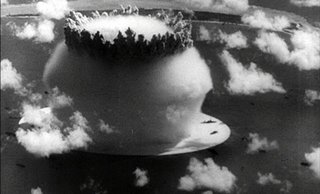 Now, as it happens, there is a very strong case to argue that the EU is in fact one of the greatest barriers to our achieving better security. We need not argue that it is a threat to our security – simply that it prevents us achieving it.
Now, as it happens, there is a very strong case to argue that the EU is in fact one of the greatest barriers to our achieving better security. We need not argue that it is a threat to our security – simply that it prevents us achieving it.And it was this, that Dr John Reid did yesterday, without even realising it, explaining exactly how the EU was putting us so much at risk.
This he did so by pointing out that internal security, defence, foreign policy, immigration control and other issues were all linked – "seamless" was the word he used. Developments in the one affect the other, and vice versa.
Certainly, the anti-war lobby and many Muslim spokesmen claim that there is a link between internal terrorism and British foreign policy. Furthermore, with opinion polls indicating there are 100,000 people in the UK who considered that the July 2005 attacks were justified, the fear is that, the longer our troops remain abroad - especially in Iraq – the more likely radical youth will tip over the edge and support terrorism.
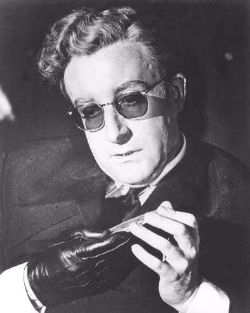 If that is the case, then – for reasons that will come self-evident – the EU might actually be helping to reduce the terrorist threat.
If that is the case, then – for reasons that will come self-evident – the EU might actually be helping to reduce the terrorist threat.But students of human psychology would doubtless agree that the reverse applies. In the history of human relationships, it is appeasement – giving in to the bully – that triggers further aggression and violence. To defeat the bully requires resolute opposition.
Now, if that is true, then we must confront and face down the bully everywhere we meet him. And no more is that necessary than in the two theatres where we are most closely engaged, Iraq and Afghanistan. Arguably, if we fail to do that, not only would it affect the security situations in those countries, it would have a very significant impact on our own domestic security.
Thinking this through, what would be the effect back at home if our government pulled our troops out of either or both theatres before the job was done? What would be the domestic reaction if we were seen to running with our tail between our legs? What would our own internal enemies think of us if, because the terrorists there had managed to repeat last Sunday's trick and slaughtered a few more troops with their bombs, our government succumbed to pressure and decided that maintaining troops in theatre was no longer sustainable?
Does anyone think that an egregious display of weakness and lack of resolve would convince potential home-grown terrorists that they should stand down their bombs and adopt a normal, civilised lifestyle? Or is it possible that, having scented blood, having perceived an easy victory, they would redouble their efforts and demand more and more concessions from our government?
If you believe that the latter scenario is more likely then it would seem that we have got ourselves in a position where – whether you agreed with the invasion of Iraq in the first instance, or not – we need to keep our troops there to the bitter end. This is not just for the security of the Iraqi peoples but also for the security of our own.
And if that is the case, you cannot be seen to have troops merely existing, skulking in their barracks behind their armour and fortifications, but actively pursuing peacekeeping operations, bringing security and democracy to the troubled nations we occupy. Whether that was in our national interest in 2003 is certainly debatable – it is now. Having been committed to the task, we have no option but to see it through.
In other words if, as Dr Reid asserts, these policy areas are "seamless", then success in dealing with our external commitments is an integral part of ensuring our domestic security.
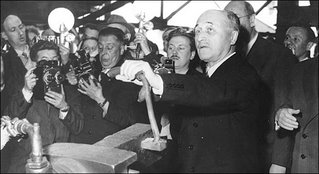 Now, as we have pointed out, virtually ad nauseum, one of the greatest barriers to dealing with those commitments is the European Union. The damage caused to our armed forces by the European experiment is huge and what is now emerging is that this damage is posing a real threat to our security.
Now, as we have pointed out, virtually ad nauseum, one of the greatest barriers to dealing with those commitments is the European Union. The damage caused to our armed forces by the European experiment is huge and what is now emerging is that this damage is posing a real threat to our security.In the context of limited budgets, what is spent on equipping out forces for participation in the European Rapid Reaction Force is not available for spending on the real army.
Thus do we find that we cannot buy the substantial number of additional helicopters that we need. We cannot buy anything like enough specialist armoured vehicles, we cannot afford specialist guns to protect our installations from mortar attack, and we cannot afford the UAVs or the hugely expensive satellite communications network needed to run them.
In short, because of the billions we have already wasted on the European defence project (to say nothing of all the other billions squandered) we are being forced to fight our real wars on the cheap. Because of that, we are in grave danger of losing.
To be in favour of a continued and effective presence in Iraq and Afghanistan, therefore, not only makes good general sense. It is as much a part of the battle against Muslim extremists at home and, by proxy, the battle against the EU. Effectively, pro-war is anti-EU. On the other hand, support for the EU and all it stands for can only ensure our eventual surrender to the fanatics.
And thus did I learn to stop worrying and love the war.
COMMENT THREAD
